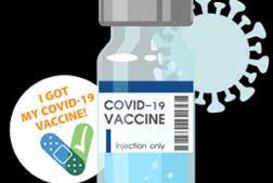Healthcare Medical Pharmaceutical Directory.com
Pharmacy - Retail, Mail, Compounding, Specialty
Business Trends:
- Walgreens, CVS and other retail pharmacies are prominent players in the 2021 national rollout of the COVID-19 immunization initiative that will require months to accomplish
- Retail pharmacy store-based medical clinics are competing against physician practices; retail and PBM mail order pharmacies are monitoring Amazon Pharmacy and its PillPack unit as they ramp up operations and marketing initiatives
- Scroll down for competitive business insights and trends spanning multiple pharmacy sectors
Specialty Pharmacy Profile
Specialty pharmacy typically involves advanced therapies and complex patient types. Therapies dispensed are often referred to as “biologics” or “large molecule” agents; they can also be conventional oral or injectable products for patients with highly specialized care needs. Oncology is a cornerstone of the specialty pharmacy sector. The high level of patient care involved coupled with the high cost, advanced pharmaceuticals required are well suited to the abilities of these providers. As more biologicals reach the marketplace for other advanced patient care conditions, oncology / specialty pharmacy protocols are readily transferable to them.
Specialty drugs and their patients can be broadly categorized as having a combination of these attributes:
- Complex to manufacture and distribute; they require special handling and administration
- Usually injectable but may be oral; injectables can be self-administered or administered by a clinician
- Due to being advanced/specialized, they are costly and taken by a smaller portion of the population
- Specialty pharmacy patients require more care and are more challenging cases for clinicians to treat
A large portion of specialty pharmacy patients are covered via Medicare. While the number of specialty pharmacy patients is relatively small in terms of the overall population, the cost of the medications they require make up a very large portion of total drug spend in both commercial and government healthcare or pharmacy benefit plans. Specialty pharmacy therapies can run from $10,000 to $100,000 in annual cost.
Depending upon the therapy and the benefit program it is featured in, the product may be covered through the medical or the pharmacy benefit. Besides storing, shipping specialty products and counseling patients, specialty pharmacies usually spend considerable time and resources verifying coverage of patients and identifying the most appropriate benefit ( medical or pharmacy ) to adjudicate the claim through.
When patients self-inject specialty drugs or take them orally, the pharmacy benefit associated with their health plan often provides coverage through the use of a PBM. When a clinician administers specialty drug therapies (through an IV or injection), the product is usually covered by the medical benefit.
UnitedHealth Group and OptumRx Expand Their Business Model With Diplomat Pharmacy Acquisition
UnitedHealth Group and Optum completed their acquisition of Diplomat Pharmacy in 2020 for $300 million and entered 2021 as an ever growing contender. Diplomat is based in Flint, Michigan and provides specialty pharmacy and home infusion services. The company is able to service patients in all 50 states and was one of the largest specialty pharmacy providers in the United States not affiliated with a chain drugstore, PBM or managed care organization. It will provide UnitedHealth Group and OptumRx with additional facilities to conduct specialty pharmacy services and support for its members plus give them access to the patient and customer account base Diplomat has built over 4 decades of business. Its acquisition of divvyDOSE in 2020 demonstrates their focus on growing their pharmacy service capabilities and fortifies their 2021 business strategy.
Buy And Bill Pharmaceutical Procurement And Reimbursement Practices
Clinicians administering injectable/intravenous specialty pharmaceuticals under the medical benefit purchase the products and then are reimbursed by payers in an arrangement called “buy and bill". Buy and bill has been a controversial business arrangement. Although it has been utilized for years, there have been issues as to how much the product cost when the clinician procured the product and what the clinician actually charged the patient and payer.
Clinicians would substantially markup products in buy and bill arrangements, especially in oncology. Payers (commercial and government) have put limits on the percentage of markup they will allow physicians to charge them but fixed price arrangements are increasingly becoming the standard. Hospital outpatient facilities also acquire specialty therapies through negotiating their own terms with manufacturers and bill the patients / payers for their administration.
Specialty Pharmacy Operating Models
Specialty pharmacies and their services operate through different models. Some are organized as "closed door" pharmacy facilities which do not have storefronts or "walk-in" business, some are operating units of PBMs in conjunction with mail order facilities, others are administered through retail pharmacies equipped and staffed to provide specialty pharmacy services. Other variations include hybrid specialty pharmacy business models which are combinations of specialty pharmacy and infusion centers or specialty pharmacies supporting home infusion providers and / or long term care facilities. Depending on the size of the organization and therapies offered, they can operate as a hub pharmacy for a manufacturer plus have multiple locations servicing regional or metropolitan areas throughout the nation.
The leading therapeutic categories dispensed via specialty pharmacy venues are:
- Oncology
- Rheumatoid Arthritis
- Multiple Sclerosis
- HIV/AIDS
- IBD
- ESRD
- IVIG
- Hemophilia
- Hepatitis C
- Growth Hormone
- Cardiovascular
- Transplant
Specialty Pharmacy Reimbursement And Market Access
Reimbursement in the specialty pharmacy sector is complicated. Depending on the patient, medication, provider and the plan(s) involved; a claims adjudication pathway may resemble a retail pharmacy claim or could involve separate charges for therapies, per diem payments for supplies, equipment, pharmacy services, non-nursing care services, shipping and separate payments for nursing care. Home infusion is typically paid from the medical benefit but overall specialty pharmacy reimbursement can be through the pharmacy or the medical benefit depending on the therapy, point-of-care and how the patient's insurance plan (or PBM) chooses to align payments based on benefit design.
Pharmaceutical manufacturers and other product firms have to account for the specialty pharmacy service sector in their market access strategy and tactics. Failure to accommodate the unique payer and service attributes within it can greatly reduce or even lock out a product from being used as contracting, payer support and reimbursement is not in place and / or a promotional pull-through framework and messaging is not aligned with the channel.
Retail and Mail Order Pharmacy Market Sector Overview...
Retail Pharmacy Profile
The entire pharmacy sector of the healthcare industry but will hit the reset button again in 2021. The chain drugstore market is dominated by two players, Walgreens and CVS. Rite Aid is in a much lesser scale position despite its recent acquisition of Bartell's Pharmacy (67 pharmacies) for $95 million in 2020 and regional pharmacy chain Fred’s has entered final bankruptcy proceedings. Genoa Pharmacy, which ranks itself as the nation's 5th largest retail pharmacy provider, is owned by UnitedHealth Group which acquired it for $2 billion in 2018. Genoa is unique in that its pharmacies operate within behavioral healthcare clinics and facilities. Retail pharmacies spanning chain drugstores, mass merchandisers, grocers and independents are would love to see the pandemic subside by the end of the 3rd quarter in 2021 and regain revenue generated by store customer foot traffic.
Preeminent retail pharmacy sector leader Walgreens continues to cultivate business model innovation and new business opportunities while it reportedly explores either going private with help from private equity ally KKR or being acquired by Amazon, Kroger, Walmart --with perhaps the possibility of being bought by UnitedHealth Group as a competitive response to the CVS/Aetna combination.
As for the mass merchandiser sector of retail pharmacy, Walmart ( NYSE: WMT ), Sam’s Club ( part of Walmart Inc.) and Target ( NYSE:TGT ) own this market but it is important to remember CVS owns and operates the pharmacy departments in all Target stores. Costco ( NYSE: COST ) is coming on strong as a player in the consumer and patient care provider segment through augmenting their retail pharmacy units with hearing, optical and other healthcare services. Costco also operates a pharmacy benefit management business unit and a mail order pharmacy.
Leading grocery chains like Kroger ( NYSE: KR ), Albertsons ( private equity owned ) are the dominant grocery-based pharmacies; the larger regional players in grocery pharmacy include HEB ( privately held ) and Publix ( privately held ).
In 2021 CVS Health expanded its business model by launching its Clinical Trial Services business unit. This follows another major business model upgrade for CVS when In September, 2019 courts approved their buyout of Aetna that continued its growth path across employee benefit consultants, PBMs, MCOs, physician practice groups, health systems and retail, mail order and specialty pharmacy. Explore these links for details about the landmark CVS and Aetna deal that has sustained its growth and changed the competitive landscape in each healthcare business sector it operates in:
Compounding Pharmacy Profile
Compounding pharmacies are distinctly different service providers. They support healthcare systems, home infusion companies, hospitals, long term care facilities and physician/clinic-based care providers. An assortment of State and Federal regulators expressed concern about and seek clarification on the status of compounding pharmacies as being manufacturers of product versus pharmacy providers. This originates from the New England Compounding Center's (NECC) safety violations which produced defective product that caused deaths and hospitalizations for patients who contracted meningitis from their administration. NECC was affiliated with a larger compounding pharmacy entity, Ameridose. Both commercial enterprises have ceased to operate. As a result of these issues, the Drug Quality and Security Act (DQSA) was passed effectively creating more stringent quality, safety, labeling, process and licensing standards to the compounding pharmacy business sector.
The ongoing dialogue between government, provider and healthcare product manufacturers as to how compounding pharmacies will be categorized and subsequently regulated moving forward resulted in the the clarification and requirements of 503B licensing. Their business is based on more specialized products which they produce on a contract basis for various providers; those with high volume, advanced capabilities are registered as "503Bs" which align them closer to "manufacturer" status. There are less than pharmacies with 503B licensing status in the United States. Many specialty pharmacies which provided services for hospitals and health systems continue to do so minus those that included compounding as defined under 503B licensing requirements.
AmerisourceBergen halts PharMEDium's operations; closes compounding pharmacy business unit in 2020
In October, '15 AmerisourceBergen acquired PharMEDium for $2.58 billion; this fortified their position in large scale, institutional pharmacy services. Margins within the compounding pharmacy unit are substantially higher than the drug wholesaling business. PharMEDium ramped up quickly during to fulfill opportunities via AmerisourceBergen channels and grow the legacy PharMEDium book of business. With the exit of Cantrell from the marketplace, PharMedium easily had the leading presence in compounding pharmacy.
An FDA permanent injunction and consent decree against PharMEDium in 2019 based on quality, safety, licensing and labeling issues has brought more scrutiny to bear from Federal and State regulators across the nation to compounding pharmacies and best practices. Early in 2020 AmerisourceBergen announced they were shutting down PharMEDium's operations completely and exiting this segment of healthcare services in pharmacy.
Mail Order Pharmacy Profile
While mail order and specialty pharmacy sectors are a comparatively fragmented sector, the leaders are CVS / Aetna, Cigna / ExpressRx, United Healthcare / OptumRx, Anthem BCBS / Ingenio Rx and AllianceRx Walgreens Prime. One of the largest merger and acquisition deals regardless of industry was Cigna acquiring Express Scripts (now known as ExpressRx) for $54 billion in 2018. The ramping up of Amazon and its PillPack online mail order pharmacy enterprise progressing into 2021 and beyond will be a viable contender as its marketing initiatives take shape and its issues with SureScripts resolved via a commercial agreement or litigation decision. United Healthcare fortified their mail order operations by acquiring divvyDOSE, an online pharmacy that specializes in unit-dose packaging services of the prescriptions it dispenses.
Mail order pharmacies offer home delivery of prescription medications which are maintenance therapies (blood pressure, cholesterol, diabetes, oral contraceptives, etc.). In addition, they often provide specialty pharmacy services for advanced injectable and biological therapies. A number of managed care organizations, PBMs and the larger retail pharmacy chains operate their own mail order pharmacies. Key managed care attributes include:
- Advanced clinical/financial reporting for payers/plans/providers
- Convenience for members not having time or proximity to visit retail pharmacies for prescription
- Economical prescription drug access for consumers/patients based on lower days supply copays
- Rigid formulary management to control employer / prescription plan payer expenses
- Rapid, large scale brand to generic conversion upon brand expiration which cuts costs
- Specialty pharmacy service attributes for advanced therapies
... A list of Mass Merchandiser Pharmacies ...
... Mail Order Pharmacy market sector ...
... As Amazon expands its business into the healthcare sector, pharmacy retailers may find themselves under siege ...
... This Pharmacy business profile spans retail pharmacies, mass merchandisers, mail order pharmacies, compounding pharmacies and specialty pharmacies; each segment features a list of the leading pharmacy providers within its sector; scroll down for complete insights ...
... A list of the largest Compounding Pharmacies...
... Find out more about Compounding Pharmacies, visit the learning resource below ...
... A list of the largest Specialty Pharmacies ...
... New and advanced immunotherapies, oncology drugs and other pharmaceutical advancement are catalysts for the pharmacy industry ...
... How and why CVS acquired one of the nation's largest health insurance companies ...
... A list of the largest Retail Pharmacies ...
... A list of the largest Mail Order Pharmacies ...
... Compounding Pharmacy market sector ...
... Specialty Pharmacy market sector ...
... Learn more about the ongoing changes at Walgreens Boots Alliance...
... Rite Aid makes a surprise deal...
... Retail pharmacies pivotal players in national COVID-19 immunization program ...
...A healthcare industry business intelligence resource with marketing strategy insights for pharmaceutical and medical device manufacturers, healthcare provider organizations, medical software and technology enterprises, patient care service companies and management consulting firms spanning a global community of users from 50+ nations...


